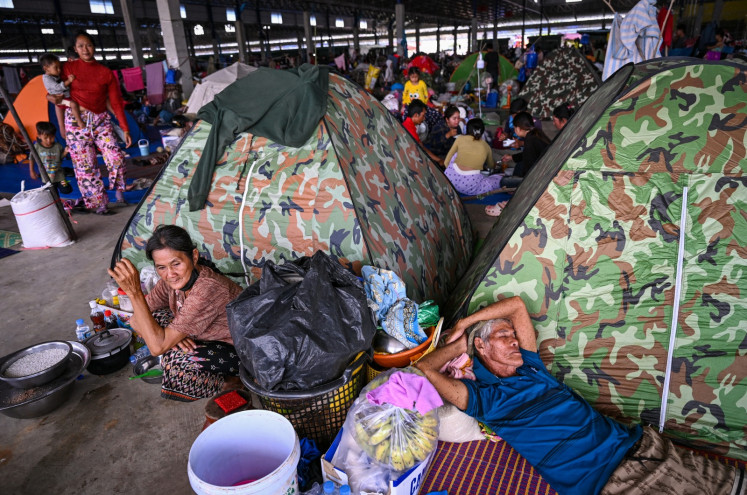Popular Reads
Top Results
Can't find what you're looking for?
View all search resultsPopular Reads
Top Results
Can't find what you're looking for?
View all search resultsCOVID-19: Early warning for property markets
With all this negative sentiment, property developers will cling tightly to their cash and delay new investments, waiting for the health crisis to end.
Change text size
Gift Premium Articles
to Anyone
A
t the beginning of the year, many predicted that the property market would get stronger in 2020, after the government launched a series of stimuli to increase demand. One of the policies was cutting the loan-to-value ratio of mortgages from 10 to 5 percent. In the middle of last year, the Finance Ministry also reduced the value-added tax on luxury goods by raising the maximum value of the goods subject to the tax from Rp 20 billion to Rp 30 billion.
But until the first quarter of 2020, there were no signs that the property market was improving. Colliers research results showed that growth in apartment prices in Jakarta's central business district was rather stagnant in the fourth quarter, up by only 0.8 percent. Bank Indonesia’s Residential Property Price Index (RPPI) grew only 1.77 percent, lower than the 1.8 percent in the third quarter. The commercial property market grew by only 0.04 percent, down from 3.12 percent.
The low growth certainly was also caused by the slight decline in gross domestic product to 5.02 percent in 2019 from 5.17 percent in 2018. As the coronavirus outbreak hit Indonesia in late February, the financial market in Jakarta also crashed, with the rupiah exchange rate and stock prices collapsing.
Today, with the COVID-19 pandemic, the implications for each sector are quite specific while the global economy is expected to suffer a recession this year.
As the Jakarta governor has declared a state of emergency in the capital and ordered offices to close and employees to work from home, demand for office and retail space will certainly fall as well. Many firms may not even be able to pay rent as a result of physical distancing and travel restrictions, while businesses are suffering a steep decrease in turnover. Office utilization will also decrease sharply.
Commercial properties, notably hotels, have also been hard hit due to travel restrictions within the country, the quarantine requirement for foreign visitors as well as the cancellation of most meetings as a result of the ban on mass gatherings. The decline in hotel occupancy rates could range from 20 to 40 percent in the coming months. Since tourism and related businesses including restaurants are all labor-intensive with a multiplier impact across the economy, the steep fall in sales will likely see massive furloughs or even layoffs in the absence of adequate government support.
In retail, social distancing has forced the temporary closure or shortened operating hours of malls and department stores, severely affecting tenants. But grocery stores and supermarkets will not suffer such steep sales falls; while physical distancing and the stay-at-home requirement has been a boost to online commerce.
The residential property market could suffer a double whammy. Massive furloughs and worker layoffs would force many buyers to default on their mortgage and rental payments. The Finance Ministry has predicted that economic growth this year may plunge to as low as between 2.5 and 0 percent. The widening gap between economic growth and mortgage rates, which still range between 10 and 13 percent, would certainly cause many defaults unless lenders lower their credit interest rates and the government provides more stimuli to improve purchasing power.
The construction sector, the main pillar of property, would naturally suffer due to indefinite delays as well as a lack of workers and imported materials.
With all this negative sentiment, property developers will cling tightly to their cash and delay new investments, waiting for the health crisis to end.
***
Certified valuer and real estate analyst at Amin, Nirwan, Alfiantori and Partners Valuation Firm. The views expressed are his own.










